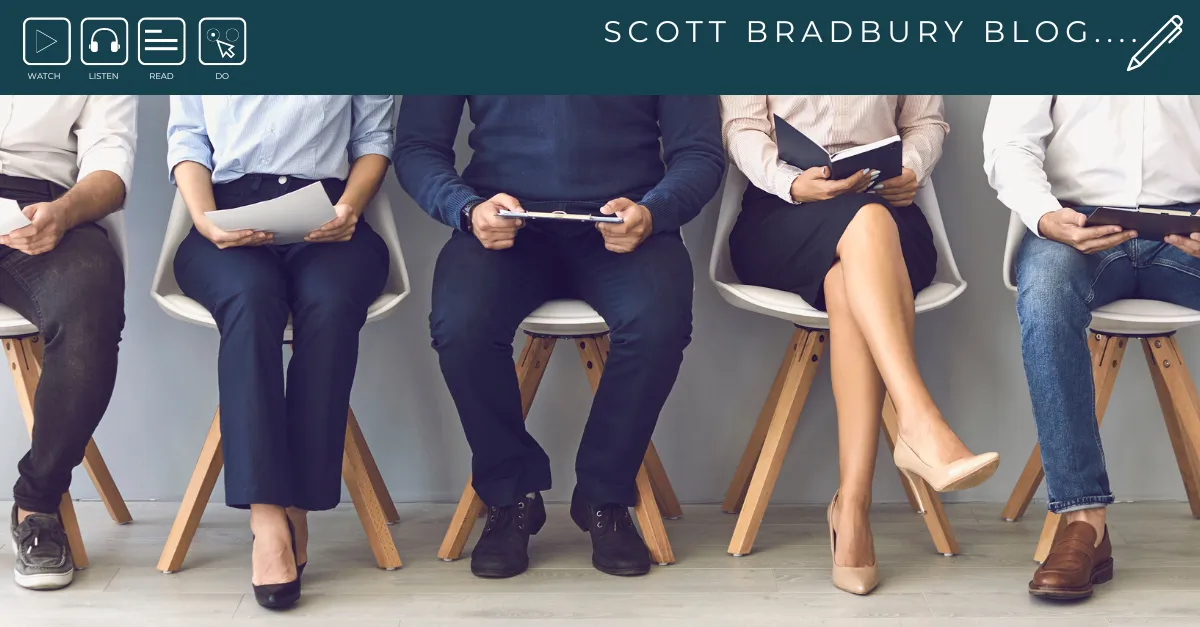
The behavioural-based interview technique is tried and tested – evaluating a candidate’s past behaviour in different situations helps you to predict future performance. ‘A Question of Evidence’ is one of our most accessed digital learning resources. I had cause to watch it again recently whilst I was reflecting on the experiences of several friends who have taken steps to change their career paths. Their interview encounters were on the whole positive, but there were some questions that made each of them stop and think.
There was the traditional opener of ‘Tell me about yourself?’ through to ‘Why do you want this job?’. The obvious strengths and weaknesses questions alongside the ‘Tell me about a conflict and how you dealt with it?’; the classic competency-based interview question. All reasonably obvious, and if you Google ‘Top Ten Interview Questions’ they are the ones that are most likely to appear.
However, I wanted to learn from their experience and reflect on the more challenging questions they were asked. From the HR perspective you’ve got the scheduled interview time of say 60 minutes for first rounders to get that initial feeling whether you think the candidate is the right fit for your organisation. For the interviewee it’s your chance to shine and make the right first impression, in what is often the most stressful of situations.
The friend taking the next steps in her teaching career was asked more about what extra-curricular activities she could bring to the school. It wasn’t just about her experience in the classroom, it was about what other skills could she bring to the role. From the employer’s perspective that’s a great insight – What else can they bring into school? They know she’ll tick all the right boxes in the education sector as the CV has been reviewed and references have been returned, but going above and beyond and really understanding the wider personality and skillset that’s useful.
The friend who moved into the charity sector was expecting, and did get, questions on what motivates you, but was also asked “When were you happiest with your job?”. I really liked the fact that the interviewer had thought about motivation in previous roles. The charity sector often attracts the more altruistic type but reflecting on the individual and what makes them happy, I really warmed to. Happy employees make for a motivated and balanced work force, which ultimately equals greater productivity – so why wouldn’t we seek an understanding of what makes the individual happy? In Sarah Metcalfe’s (Chief Happiness Officer of Happy Coffee Consulting) Sound Advice podcast that she recorded for Scott Bradbury last year she discussed how happiness is a gateway “through which other positive emotions and success are achieved”. So, what have we got lose? Let’s delve into the happiness question in an interview!
A friend who has taken early retirement decided to put herself forward for volunteering work at a local National Trust Garden. In her interview she was asked about her understanding of the environment and gardening experience to date. Having worked in an office for 30 years she could only fall back on the tending and cultivating she had managed in the square patch behind her house. She couldn’t offer any formal experience. She was nervous. Would they accept her lack of experience in what it is a highly prized formal garden. The answer was ‘yes’, they offered her a role, not because of her experience but because they liked her personality. She would fit with the other volunteers, she appeared trustworthy, and she came across as keen to learn. Reflections for me were that sometimes it’s not about the practical experience, what mattered was how she presented herself. She can be taught what she needs to know – it was more about the person she was than her experience to date.
Listening to these three recent experiences made me think about how I might change the format of questions I ask when I’m next sitting behind the interview desk. Whilst there are the practical, formal behavioural-based questions that need to be asked. Should we not also focus on the wider context to understand the person as a whole? What else can they bring to the role? And finally, and perhaps most importantly, what makes them happy?